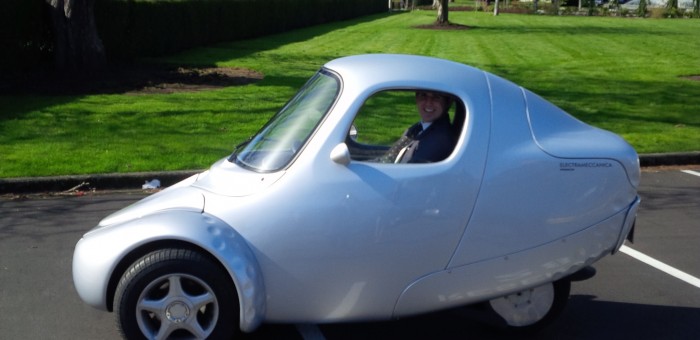Statement on Canada’s Electric Vehicle Policy Report Card
Media Release: November 15th, 2016
Weaver Statement on Canada’s Electric Vehicle Policy Report Card
For Immediate Release
Victoria, B.C. – “The B.C. Liberals continue to struggle with embracing the technology of the 21st Century,” said Andrew Weaver, MLA for Oak Bay – Gordon Head and Leader of the B.C. Green Party, in response to the near failing C- grade that B.C. has received on Canada’s Electric Vehicle Policy Report Card. The report was released today by Simon Fraser University’s Sustainable Transportation Action Research Team.
“Jurisdictions around the world are actively embracing the future of transportation and B.C. is getting left behind. We have a wonderful opportunity to get on board as a leader in this sector. I hope that we seize this opportunity instead of resisting our passage into the modern age. The BC Liberal’s uninspired approach to embracing the future is typical of a government that has dragged their feet on ridehailing and significant investment in the tech industry, while championing a return to a fossil-fuel based 20th century economy.”
“Our economy is falling further and further behind the rest of the world. B.C. needs to introduce legislation that mirrors California’s Zero Emission Vehicle Standard Program and start to lead in transportation sectors such as this.”
A Zero Emission Vehicle (ZEV) Standard Program has also been adopted by Quebec and nine US States in addition to California (Connecticut, Maine, Maryland, Massachusetts, New Jersey, New York, Oregon, Rhode Island and Vermont).
Under the ZEV Program, automakers are required to earn a set percentage of zero emission vehicle credits, through selling electric vehicles or buying credits from other automakers who have a surplus. In Quebec, automakers must maintain ZEV credits equal to 3.4% of all sales of 2018 models, rising to 15.5% in 2025. In California, credit requirements are 4.5% in 2018 and 22% in 2025.
“With the Lower Mainland and Southern Vancouver Island geographically constrained, they represent ideal locations for the widespread adoption of zero emission electric vehicles.
“Whether we are leaders or laggards, this is where the world is heading. We ought to capitalize on that.
-30-
Media Contact
Mat Wright – Press Secretary, Andrew Weaver MLA
1 250 216 3382
mat.wright@leg.bc.ca
Background:
SFU’s Sustainable Transportation Action Research Team (START) today released the first ever comprehensive assessment of electric vehicle (EV) policy progress across the country. Canada’s Electric Vehicle Policy Report Card aims to provide provincial leaders with an assessment of whether current and planned EV policies will cut transportation-related greenhouse gas emissions at the scope, scale, and speed needed to prevent dangerous climate change. B.C. scores an underwhelming C-.
Electric Vehicle Use Internationally:
The Indian government has introduced an aggressive incentive program with the goal of having every car on its roads electric by 2030, they aim to be a 100 percent electric vehicle nation. Dutch politicians have voted through a motion calling on the country to ban sales of new petrol and diesel cars starting in 2025, to make their roads gradually electrify over the next decade. In June, Norway’s major parties reached an agreement to ban the sale of new gasoline and diesel powered cars starting in 2025. In October, German legislators of both parties voted to ban the internal combustion engine by 2030.





One Comment
Why is it so difficult to buy an electric car? The dealers dont seem to want to sell them! They are way more expensive than they should be. Government must work with car manufacturers. All cars should shut off in traffic back ups to stop pollution. Smart Cars used to be efficient but legislation in the US and Canada made them use larger motors and burn more gas. Does the term SUV allow poorer emission standards as in the past? Would like to see permits for large pick up trucks to prove they are being used for work.